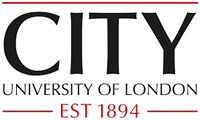Dr L Dipper, Prof G Morgan
No more applications being accepted
Funded PhD Project (Students Worldwide)
About the Project
Recently there has been a growing interest in the relationship between narrative language and the impact of language impairment on this set of skills. For example some research finds children with language disorders are able to construct narratives at the global level (story grammar) but find the local level (cohesion mechanisms) more difficult.
In addition it is not clear how children use gestures in their narratives. Gesture can provide a way of explaining action and pointing out reference without recourse to linguistic labels. In aphasia research there is evidence to suggest that a semantic impairment in language can be reflected in semantically empty co-speech gesture (see Cocks, Dipper, Pritchard & Morgan, 2013), which may also be the case in children with language impairment and which may show-up in typically developing children as their semantic systems mature. On the other hand, there is also evidence from aphasia to suggest that gesture can help support impaired language when co-speech gestures contain relatively more information than the language in the narratives they accompany. Enriching the evidence base about co-speech gesture in developmental language (&in the language of children with language impairments) is important because gesture should be included in clinical assessments of meaning-making.
This project explores the relationship between narrative language and gesture production by children (typically developing children aged 3-5; & those with a communication impairment such as SLI). Using standard methodologies from language acquisition and gesture research, the research student will collect narrative data from children, asking them to re-tell you the story of a Sylvester and Tweety cartoon. Research questions include: whether and how properties of language (or of impaired language) are reflected in the co-occurring gesture.
Recommended Skills:
1. Degree in a related area: speech and language therapy, psychology, linguistics (essential)
2. Excellent communication skills (essential)
3. Prior experience of working with children with speech language and communication needs in this age-group (desirable)
Funding Notes
A doctoral studentship will provide:
• An annual bursary (£16,000 in 2016/17)
• All fees for PhD student registration paid for UK and EU students. Applications are welcome from overseas applicants but the applicant must make appropriate arrangements to cover the difference between the overseas and UK tuition fee
• Research costs up to £1000 over the three years

 Continue with Facebook
Continue with Facebook

